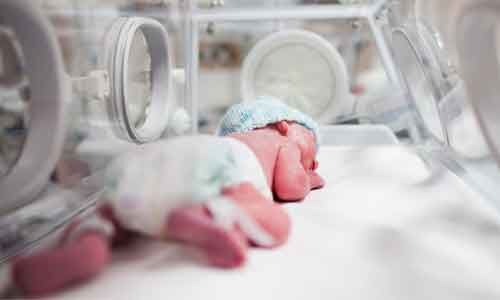- Home
- Medical news & Guidelines
- Anesthesiology
- Cardiology and CTVS
- Critical Care
- Dentistry
- Dermatology
- Diabetes and Endocrinology
- ENT
- Gastroenterology
- Medicine
- Nephrology
- Neurology
- Obstretics-Gynaecology
- Oncology
- Ophthalmology
- Orthopaedics
- Pediatrics-Neonatology
- Psychiatry
- Pulmonology
- Radiology
- Surgery
- Urology
- Laboratory Medicine
- Diet
- Nursing
- Paramedical
- Physiotherapy
- Health news
- Fact Check
- Bone Health Fact Check
- Brain Health Fact Check
- Cancer Related Fact Check
- Child Care Fact Check
- Dental and oral health fact check
- Diabetes and metabolic health fact check
- Diet and Nutrition Fact Check
- Eye and ENT Care Fact Check
- Fitness fact check
- Gut health fact check
- Heart health fact check
- Kidney health fact check
- Medical education fact check
- Men's health fact check
- Respiratory fact check
- Skin and hair care fact check
- Vaccine and Immunization fact check
- Women's health fact check
- AYUSH
- State News
- Andaman and Nicobar Islands
- Andhra Pradesh
- Arunachal Pradesh
- Assam
- Bihar
- Chandigarh
- Chattisgarh
- Dadra and Nagar Haveli
- Daman and Diu
- Delhi
- Goa
- Gujarat
- Haryana
- Himachal Pradesh
- Jammu & Kashmir
- Jharkhand
- Karnataka
- Kerala
- Ladakh
- Lakshadweep
- Madhya Pradesh
- Maharashtra
- Manipur
- Meghalaya
- Mizoram
- Nagaland
- Odisha
- Puducherry
- Punjab
- Rajasthan
- Sikkim
- Tamil Nadu
- Telangana
- Tripura
- Uttar Pradesh
- Uttrakhand
- West Bengal
- Medical Education
- Industry
Higher red cell transfusion threshold doesn't improve survival in preterm infants:NEJM

Very low birthweight infants often need blood transfusions to survive.Limited data suggest that higher hemoglobin thresholds for red-cell transfusions may reduce the risk of cognitive delay among extremely-low-birth-weight infants with anemia.
Researchers have found in a new study that providing a higher threshold of red cells within accepted limits offers no advantage in survival or reduction in neurological impairment over a lower threshold.
The study appears in The New England Journal of Medicine.
Very preterm infants (born before 29 weeks of pregnancy) and those weighing less than 1,000 grams (slightly more than 2 pounds) are at high risk for anemia because of their early stage of development, reduced ability to produce red blood cells and need for increased blood sampling as part of their intensive medical care. Previous studies suggest that anemic infants would have a lower risk of death, cognitive delay, cerebral palsy and hearing and vision loss if they received transfusions leading to higher hemoglobin thresholds within the currently accepted range. Measuring hemoglobin, a protein produced in red blood cells, indicates the proportion of red blood cells. Hemoglobin transfusion thresholds for preterm infants vary according to weight, stage of maturity and other factors.
Of 845 infants assigned to a higher hemoglobin threshold, 50.1% died or survived with a neurodevelopmental impairment, compared to 49.8% of 847 infants assigned to a lower threshold. When the two component outcomes were evaluated separately, the two groups also had similar rates of death (16.2% vs. 15%) and of neurodevelopmental impairment (39.6% vs 40.3%). The authors conclude that a higher hemoglobin threshold increased the number of transfusions, but did not improve the chance of survival without neurodevelopmental impairment.
Hina Zahid Joined Medical Dialogue in 2017 with a passion to work as a Reporter. She coordinates with various national and international journals and association and covers all the stories related to Medical guidelines, Medical Journals, rare medical surgeries as well as all the updates in the medical field. Email: editorial@medicaldialogues.in. Contact no. 011-43720751
Dr Kamal Kant Kohli-MBBS, DTCD- a chest specialist with more than 30 years of practice and a flair for writing clinical articles, Dr Kamal Kant Kohli joined Medical Dialogues as a Chief Editor of Medical News. Besides writing articles, as an editor, he proofreads and verifies all the medical content published on Medical Dialogues including those coming from journals, studies,medical conferences,guidelines etc. Email: drkohli@medicaldialogues.in. Contact no. 011-43720751


